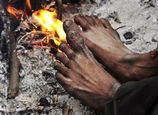
She called for legislation to protect vulnerable women by providing them with a greater chance to gain custody of their child, among other benefits.
The proposal also has practical limitations, as the criteria for determining sexual orientation differs from person to person.
"Gay men usually communicate with each other via the Internet and mobile phones. But as far as I know, some judges tend to admit chat logs and text messages as evidence to identify a person as gay, while others don't," Zhang said.
The judges are also divided as to how evidence obtained by private detectives should be treated, he said.
In addition, Liu warned that legislation concerning married homosexuals should take into consideration situations in which a person realizes he or she is homosexual only after getting married.
Her remark refers to a portion of the court report that refers to homosexuals who fail to inform their spouses about their sexual orientation as "wrongdoers," wording that could put them in a weaker position in terms of dividing property in the event of a divorce.
In June 2012, Luo Hongling, a young college teacher from Sichuan, committed suicide after finding out her newly-married husband was gay. Her death shone a light on the predicaments faced by the wives of gay men and drew wide sympathy from the public.
Luo's parents later filed a lawsuit in a local court against her husband, accusing him of deceiving their daughter and suing for compensation.
However, the court ruled earlier this month that there was no legal basis for their allegations and demands.
Zhang described the verdict as "a disaster for not only the couple, but also for all the wives of gay men."

















 Photos: Cities and villages surrounded by pollution
Photos: Cities and villages surrounded by pollution


![]()
